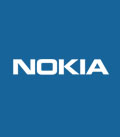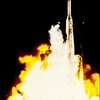By Beecher Tuttle
The exponential growth of the world's population – coupled with the ever-increasing reliance on automobiles and the deterioration of roads and highways – has turned traffic congestion into a major concern.
In fact, the Urban Mobility Report estimated in 2009 that the ramifications of traffic congestion cost Americans around $80 billion a year, not to mention the negative consequences for the environment. This number is expected to reach $150 billion by 2033, and the problem is even worse in more crowded countries like India and China.
Unfortunately, the sluggish economy has only worsened the issue, as many communities no longer have the resources to fix their infrastructure or modernize their public transit systems.
So what are communities to do?....
One alternative to pricey construction projects is traffic-sensing solutions, which can provide relevant and up-to-date information to drivers and traffic authorities on commuting times, congestion patterns and the impact of accidents and construction.
Armed with this information, drivers can avoid congested areas and eliminate the negative ramifications of traffic, such as wear and tear on automobiles and wasted fuel and time. Traffic-sensing solutions can also give authorities valuable information to help them optimize public transportation and improve road capacity where needed.
Various traffic-sensing solutions are available, but unfortunately they are all too costly, inaccurate and impractical. These options include in-road sensors, GPS-based solutions and cellular triangulation-based solutions.
However, researchers have recently begun to explore a new Bluetooth-based technology that may make traffic-sensing a viable solution. The concept, currently being explored by researchers at Alcatel-Lucent's Bell Labs, can be much more accurate and cost-effective than the aforementioned alternatives.
The idea was born from a pilot project in Mumbai, where low-cost Bluetooth scanners were placed on the sides of roads and used to pick up signals from Bluetooth devices in passing cars. When the car crossed the path of a second scanner, the researchers were able to determine the travel time of the commuter and, when combined with data from other cars, make certain assumptions on traffic patterns.
The tests were highly successful and achieved the goals of finding a low-cost, high-accuracy solution that provides rich and detailed traffic information. Bluetooth sensors are relatively inexpensive, and the technology is widely used in mobile devices and becoming more ubiquitous each day.
The impressive results of the Mumbai test and proceeding analyses led Alcatel-Lucent to create an Intelligent Travel Time System (ITTS) based on Bluetooth technology.
The system uses sensors on roads to collect Media Access Control (MAC) addresses from Bluetooth-enabled mobile devices in passing cars. This information is then transmitted to a central server via Ethernet or wireless communication. After the data is collected, it is saved to a database that can be accessed by commuters and authorities for traffic predictions, studies and alternative route planning.
"The resulting solution provides highly accurate information, is easy to deploy and inexpensive to install," Vikram Srinivasan Technical Manager at Bell Labs, wrote in a recent white paper describing the solution. "In addition, ongoing costs are controlled because sensors can be managed remotely and the cost of the system does not go up as either traffic increases or as the number of users increases."
With ITTS, traffic authorities can arm themselves with all the tools necessary to mitigate traffic concerns as best as they can. The solution is particularly viable is today's conditions because it can be accessed without cost or impact to the user.










